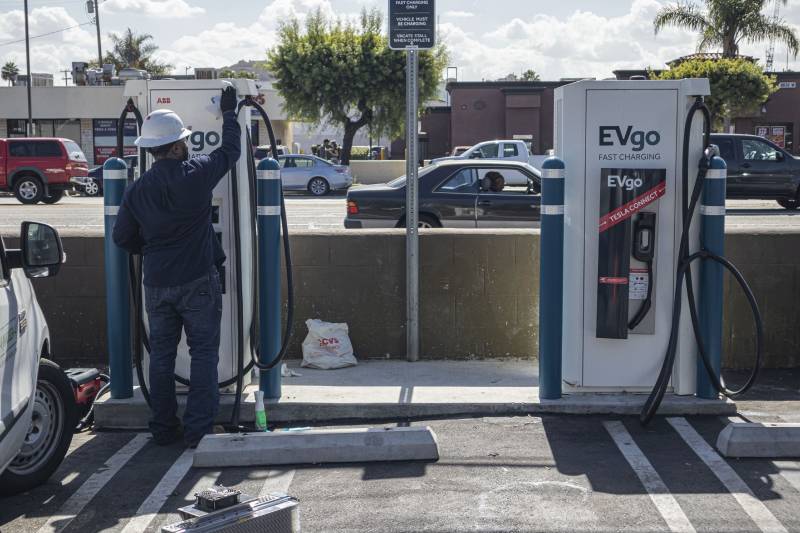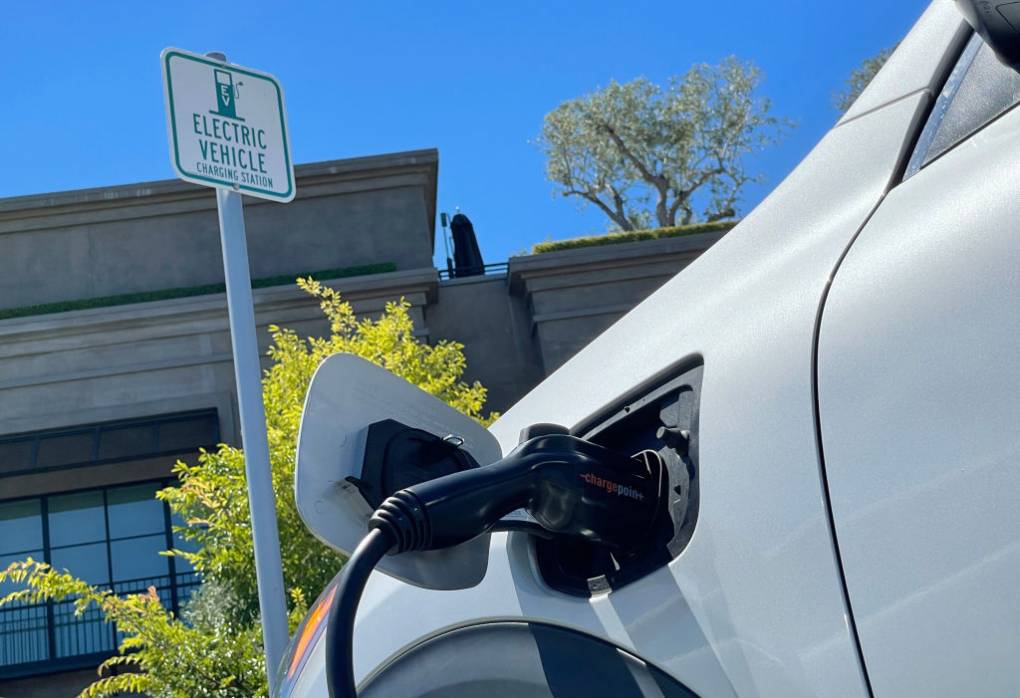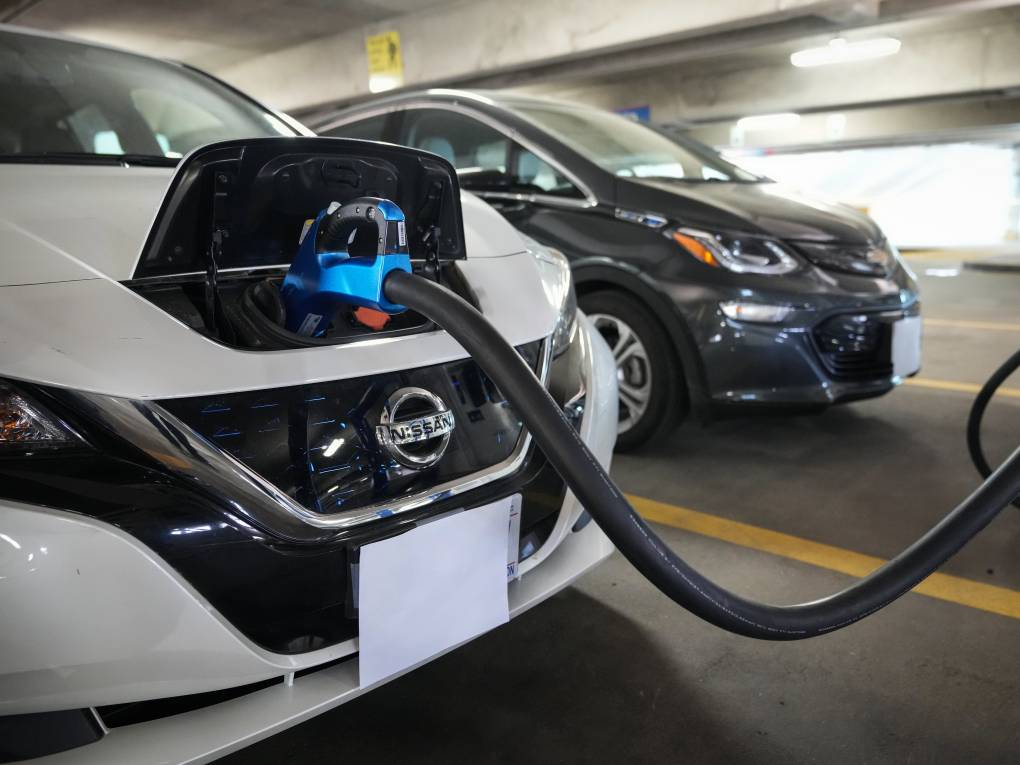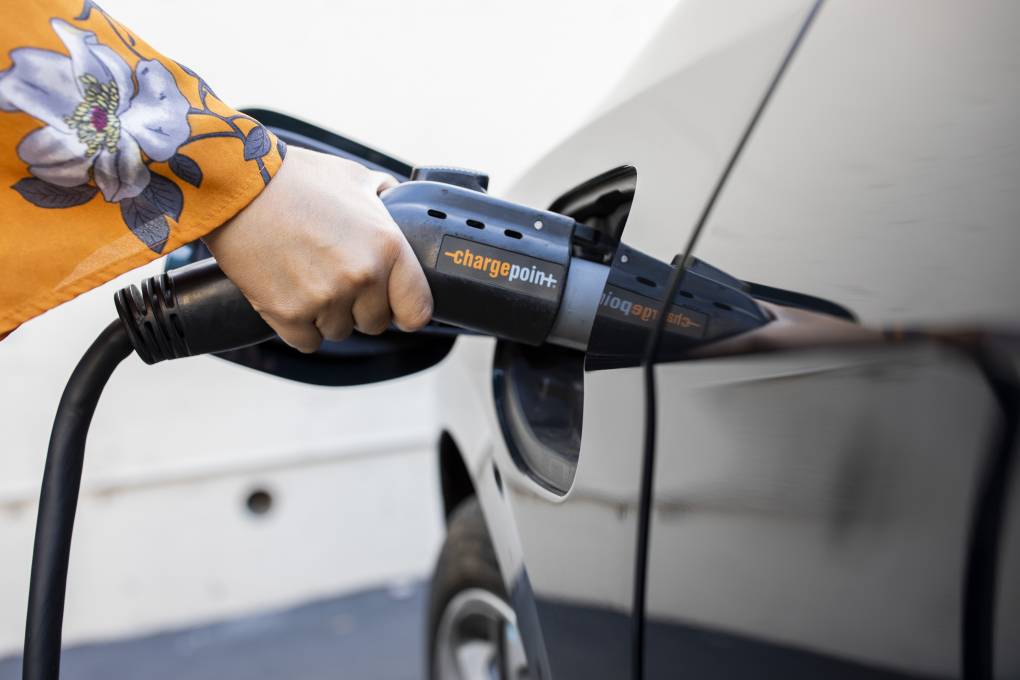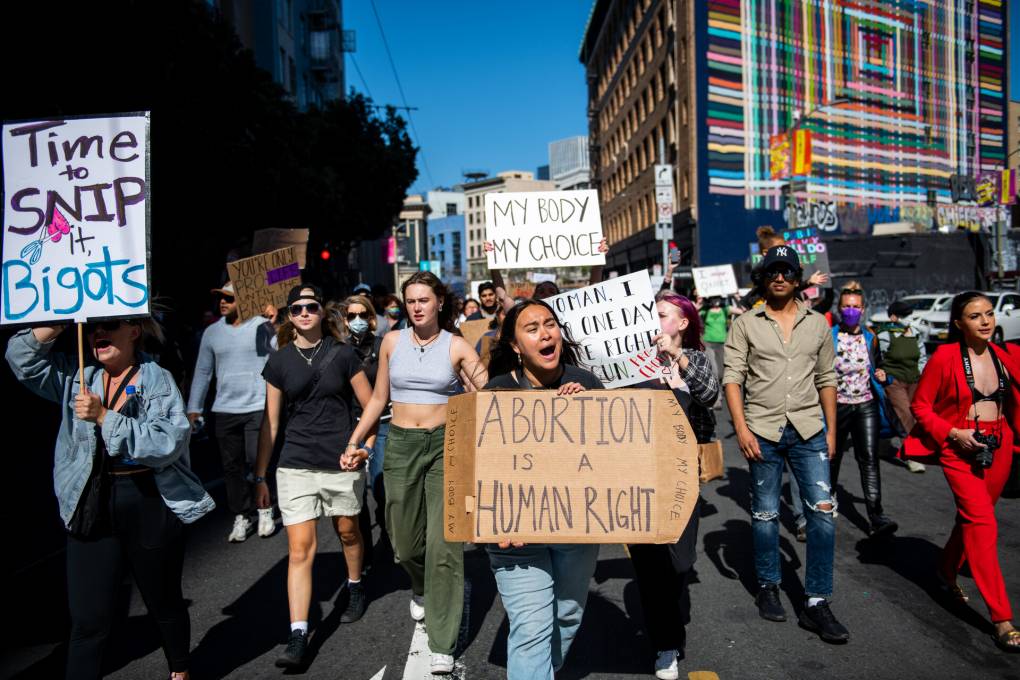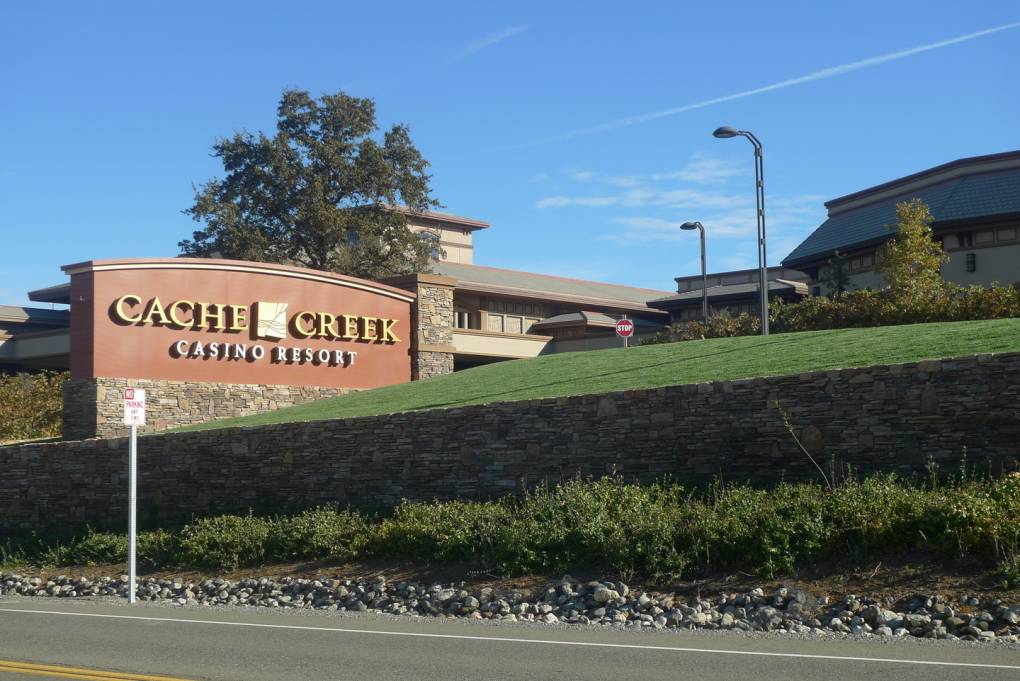Assemblymember Buffy Wicks (D-Oakland) grew up in the community of Foresthill, now located at the eastern flank of the monstrous Mosquito Fire, which has burned through more than 60,000 acres and into that town.
“The community I grew up in Foresthill is at threat of being completely wiped off the face of the Earth right now for me,” she said. “That compels me to take action and to ask everyone to take action on this really critical issue.”
Newsom’s argument to voters: Prop. 30 is about Lyft, not climate
“Don’t be fooled,” Newsom said in his campaign ad, reportedly the only one Newsom will personally appear in this year. “Prop. 30 is being advertised as a climate initiative but in reality it was devised by a single corporation to funnel state income taxes to benefit their company.”
Newsom’s ad is a huge expenditure of political capital against a proposition that would fund electrical vehicle rebates and charging infrastructure — and comes only weeks after California solidified its plan to phase out the sale of gasoline-powered cars next decade.
The San Francisco Chronicle’s Joe Garofoli reported that Newsom’s traditional political enemies are loving him for starring in the ad.
Maybe it’s good politics, if you’re going to oppose Prop. 30, to paint it as a corporate bailout. But critics say it’s a cynical and disingenuous take on the measure, which was actually devised by transit and environmental justice groups such as the Bay Area nonprofit think tank SPUR and Move LA from the Los Angeles area.
For years, those groups have pushed California to reduce its top source of greenhouse gas emissions: transportation.
Back in 2020, they convened a bunch of California’s climate intelligentsia — including Mary Nichols, Newsom’s former top air regulator — and asked them this question: If you had $30 billion to spend fighting climate change, what would you do?
The answer: Invest in electric vehicle rebates and chargers.
“Build out charging infrastructure for passenger cars,” said Kevin de León, former leader of the state Senate, during that event. “The infrastructure has to be there.”
